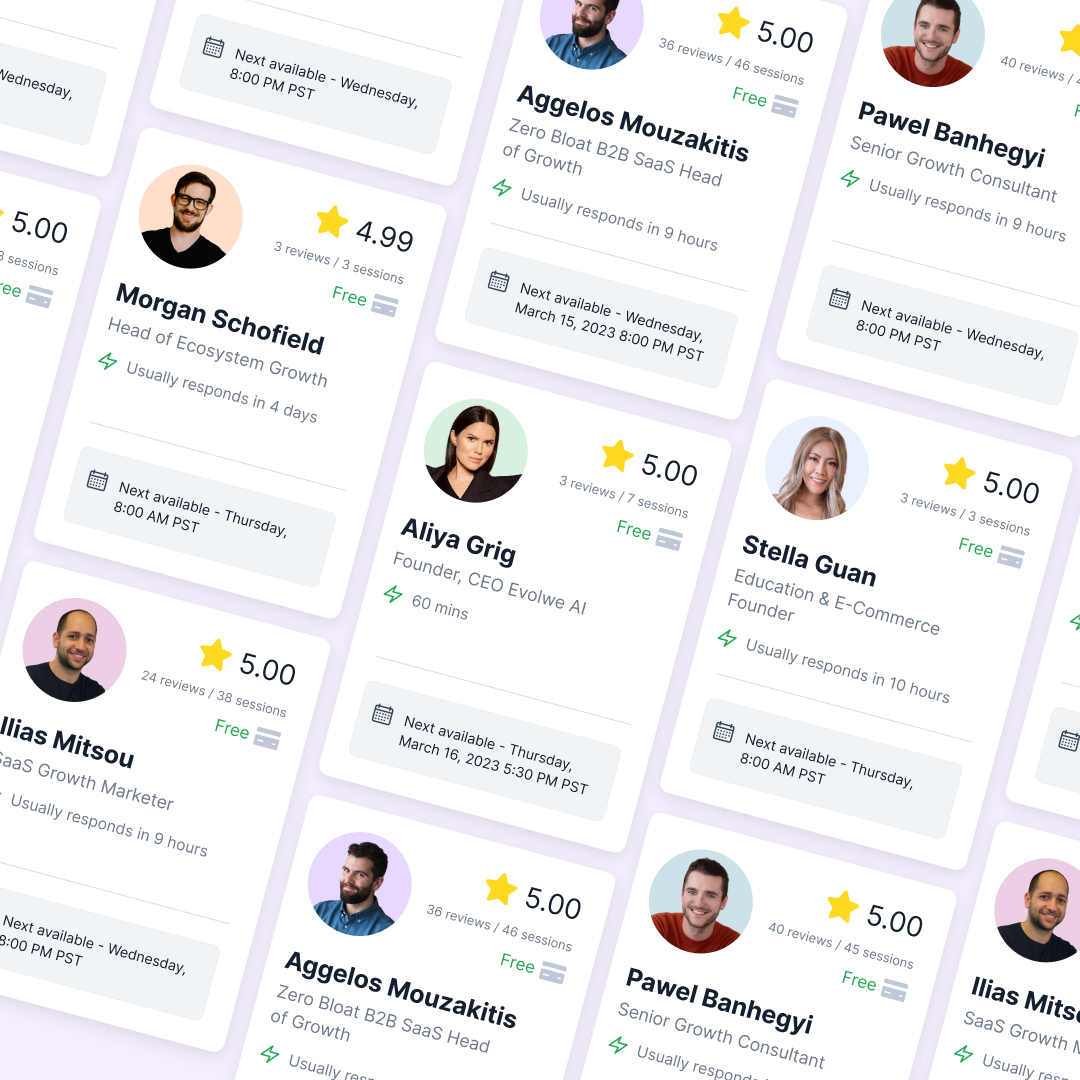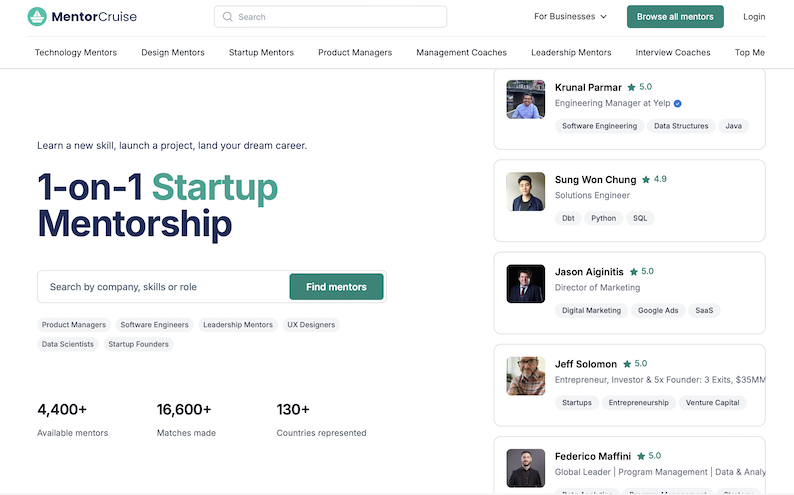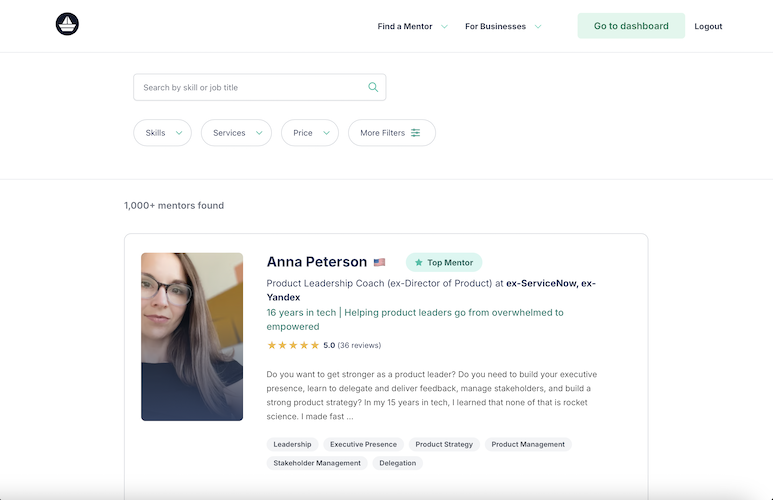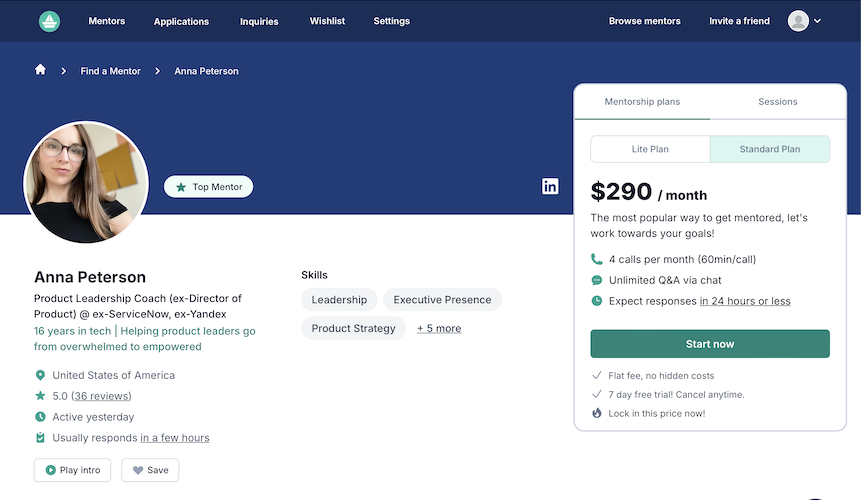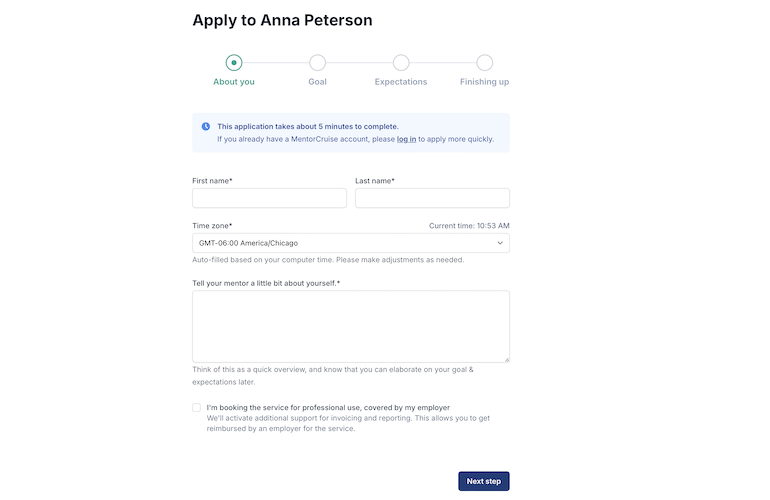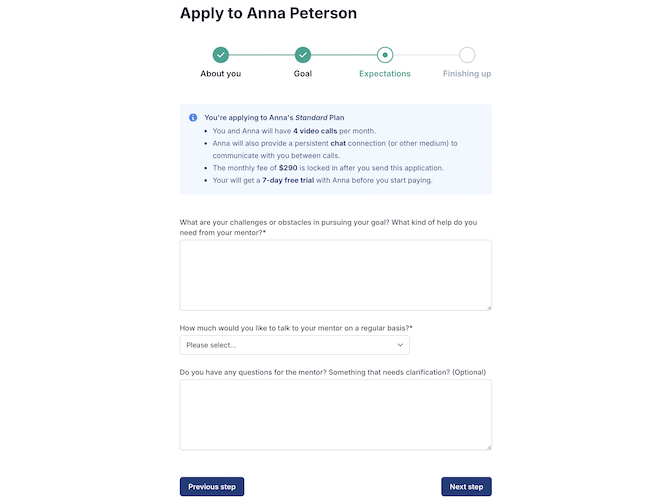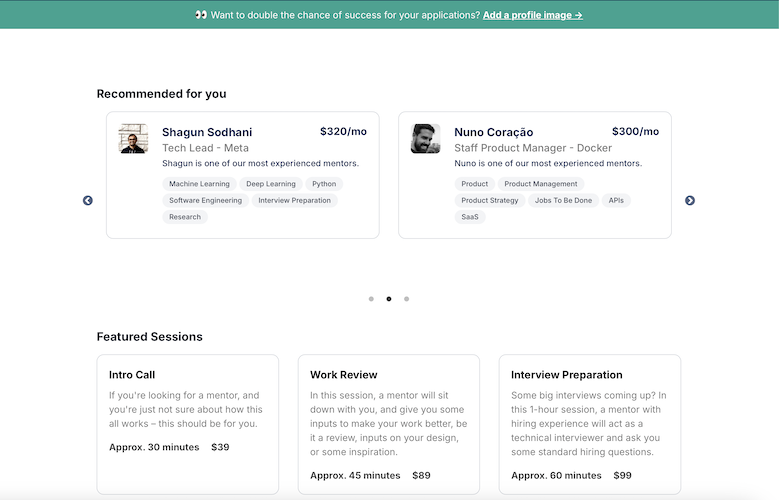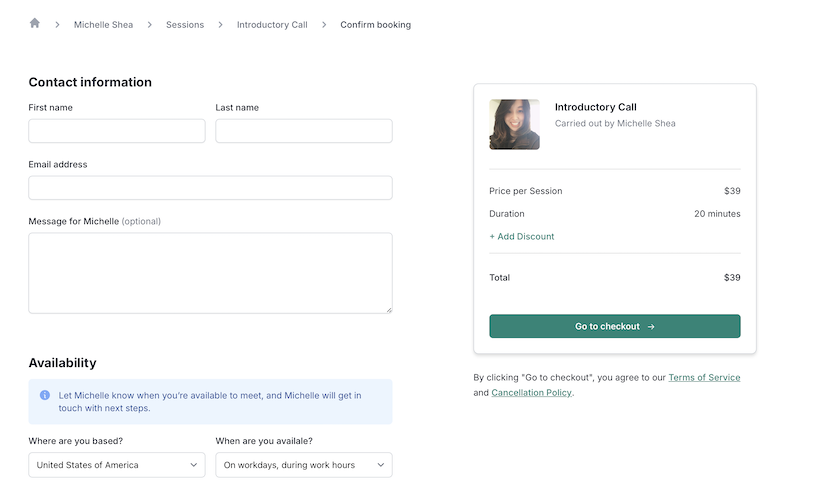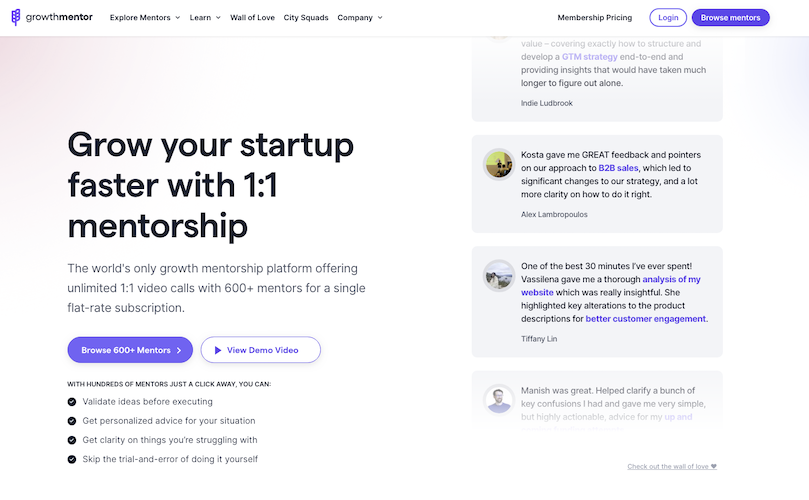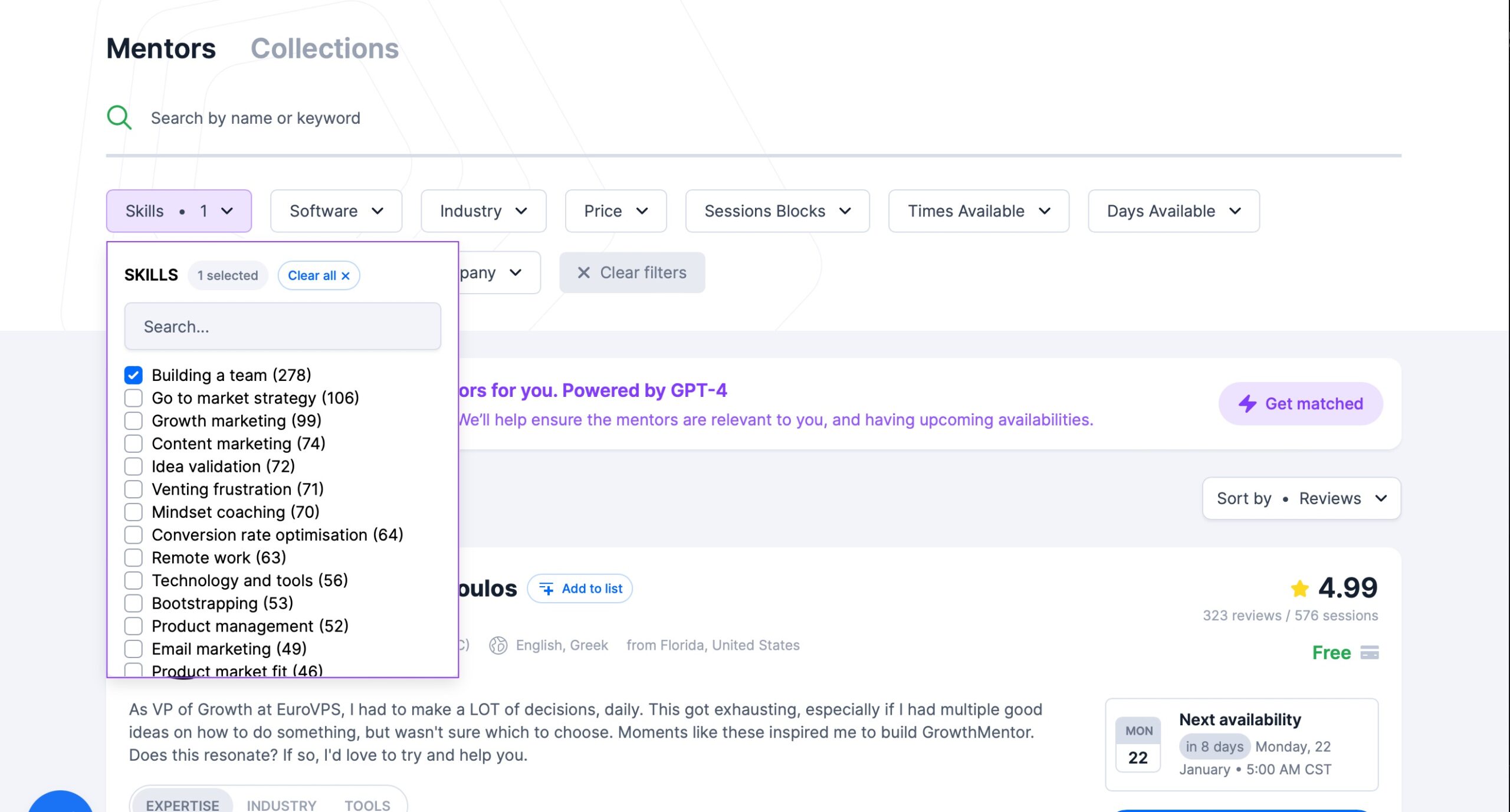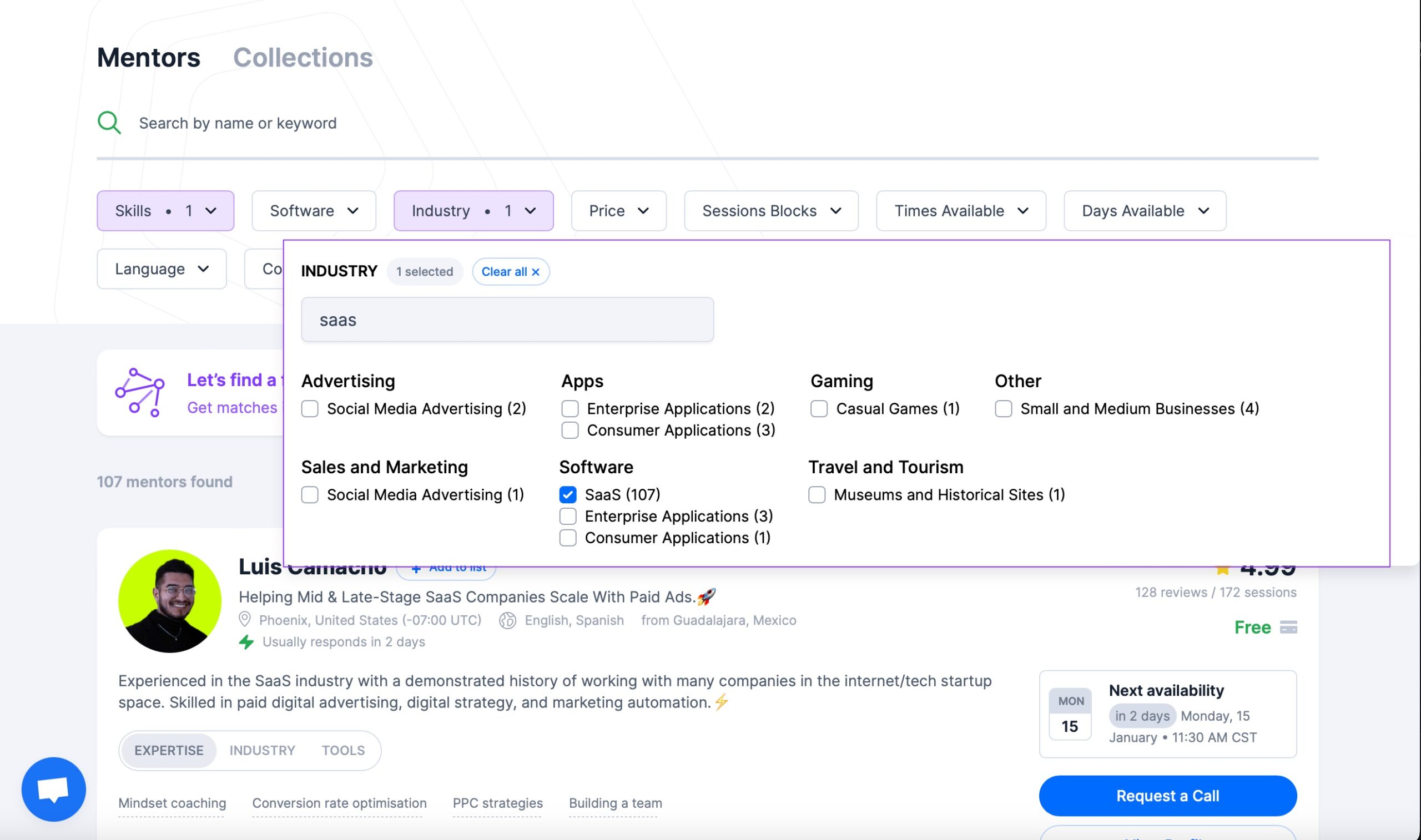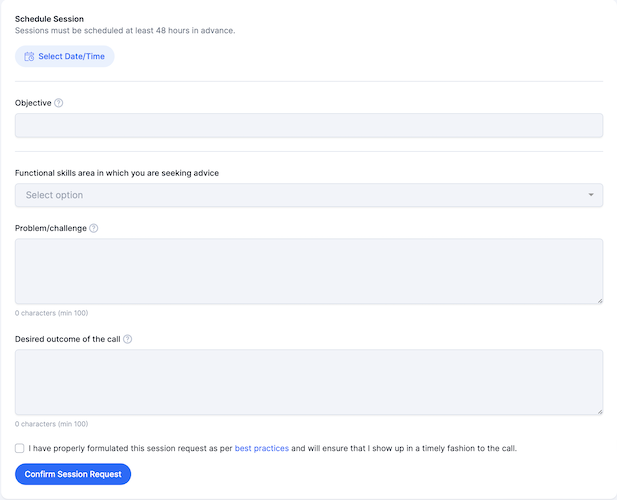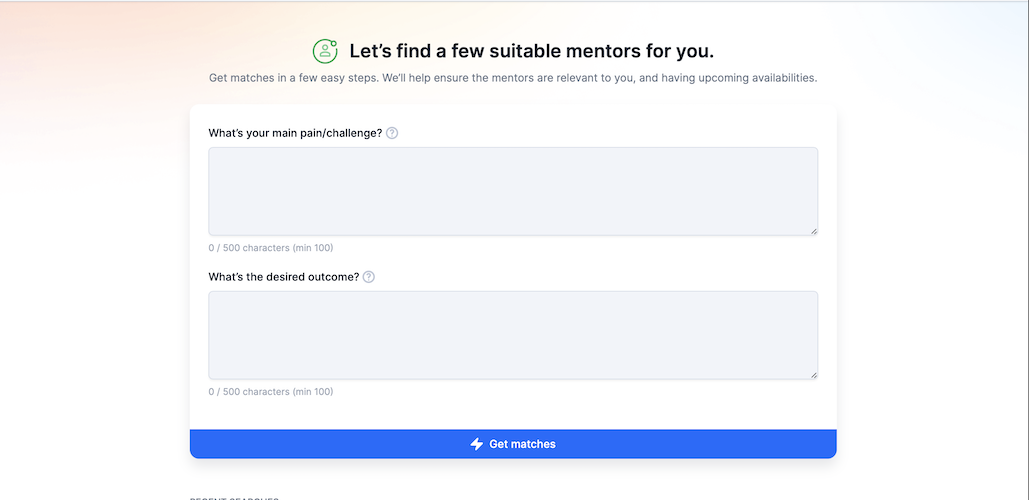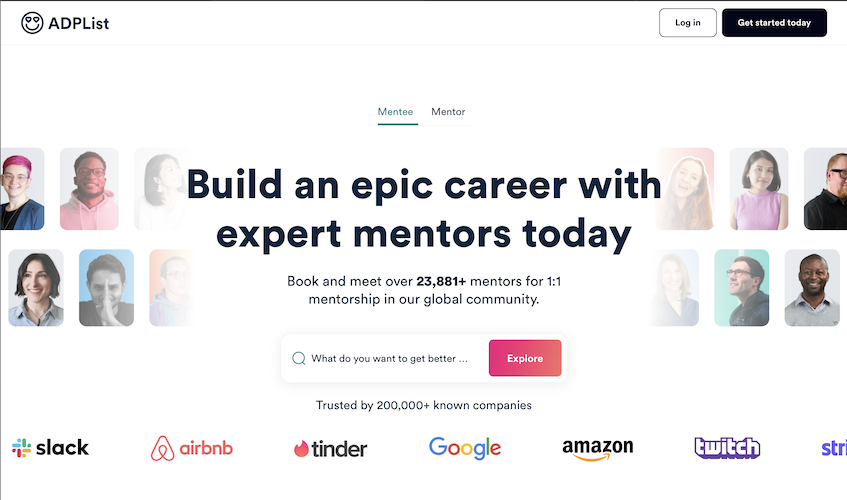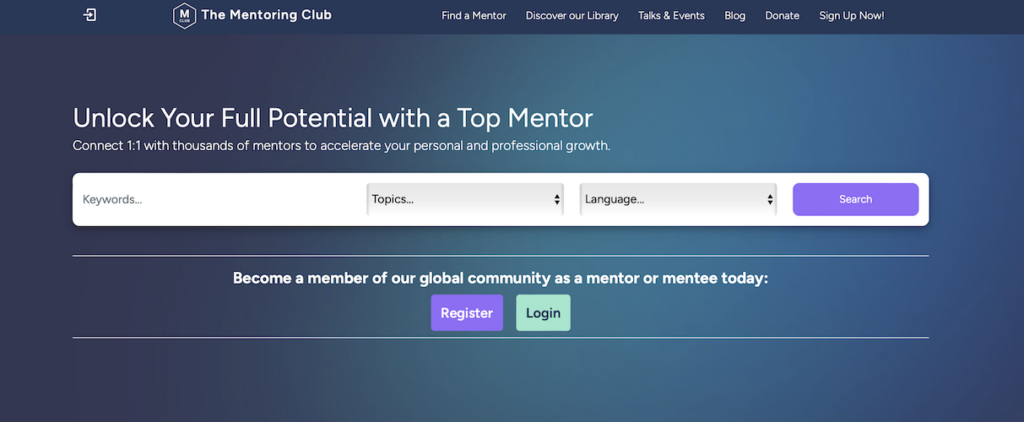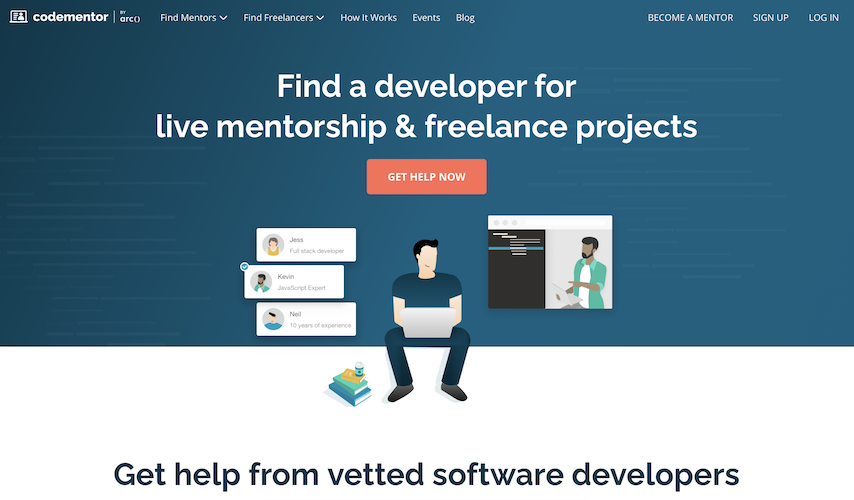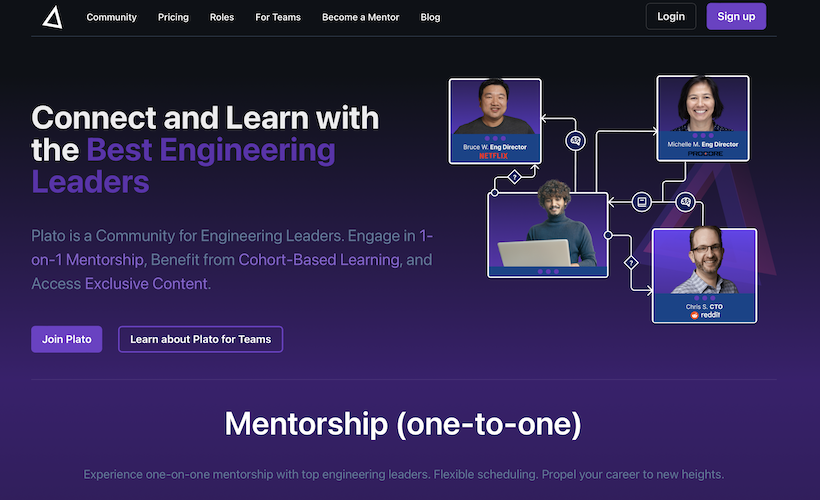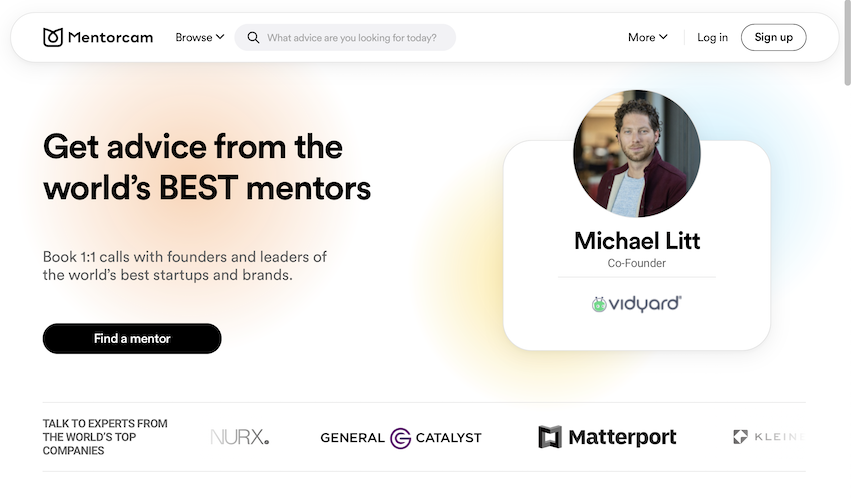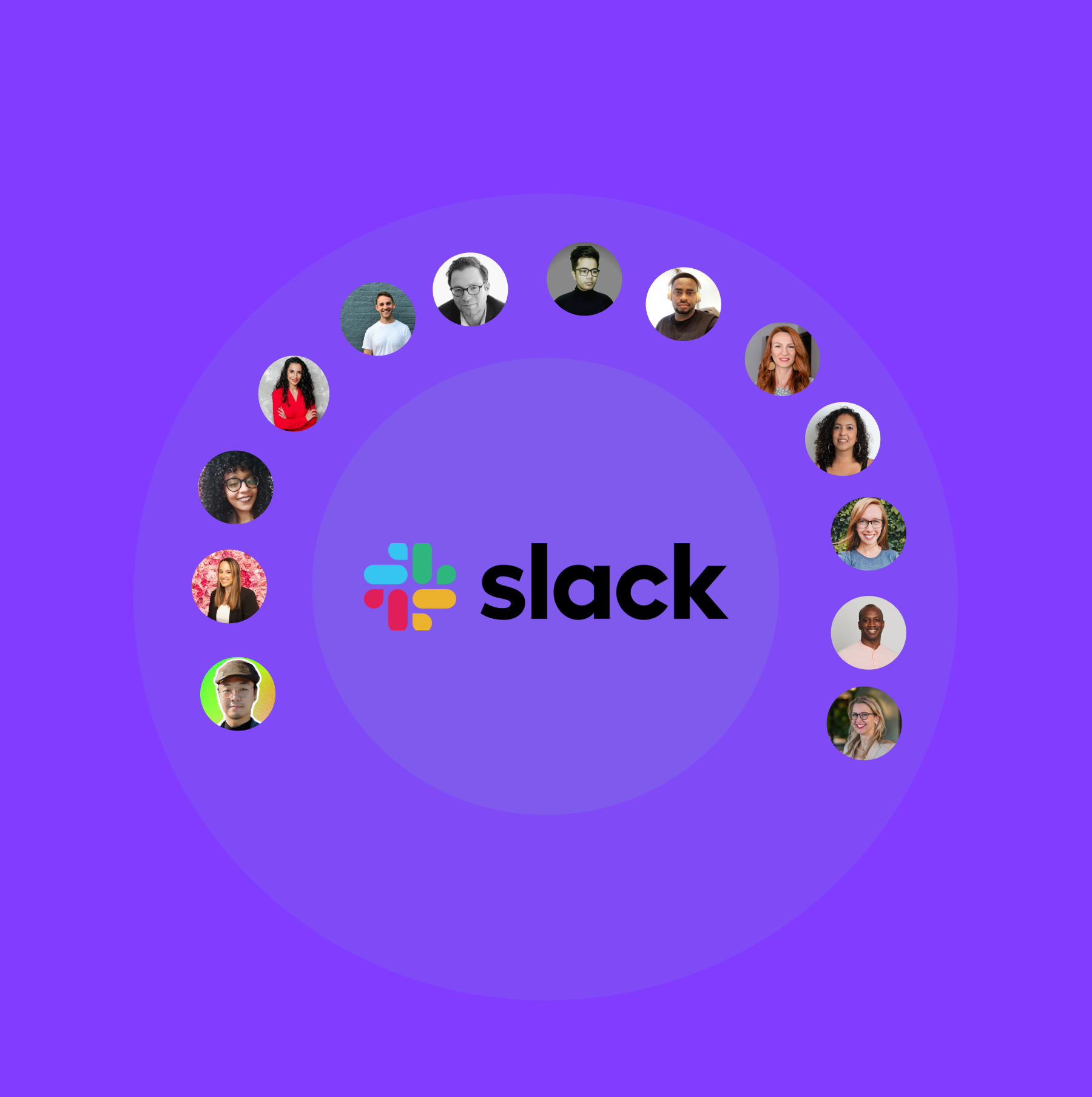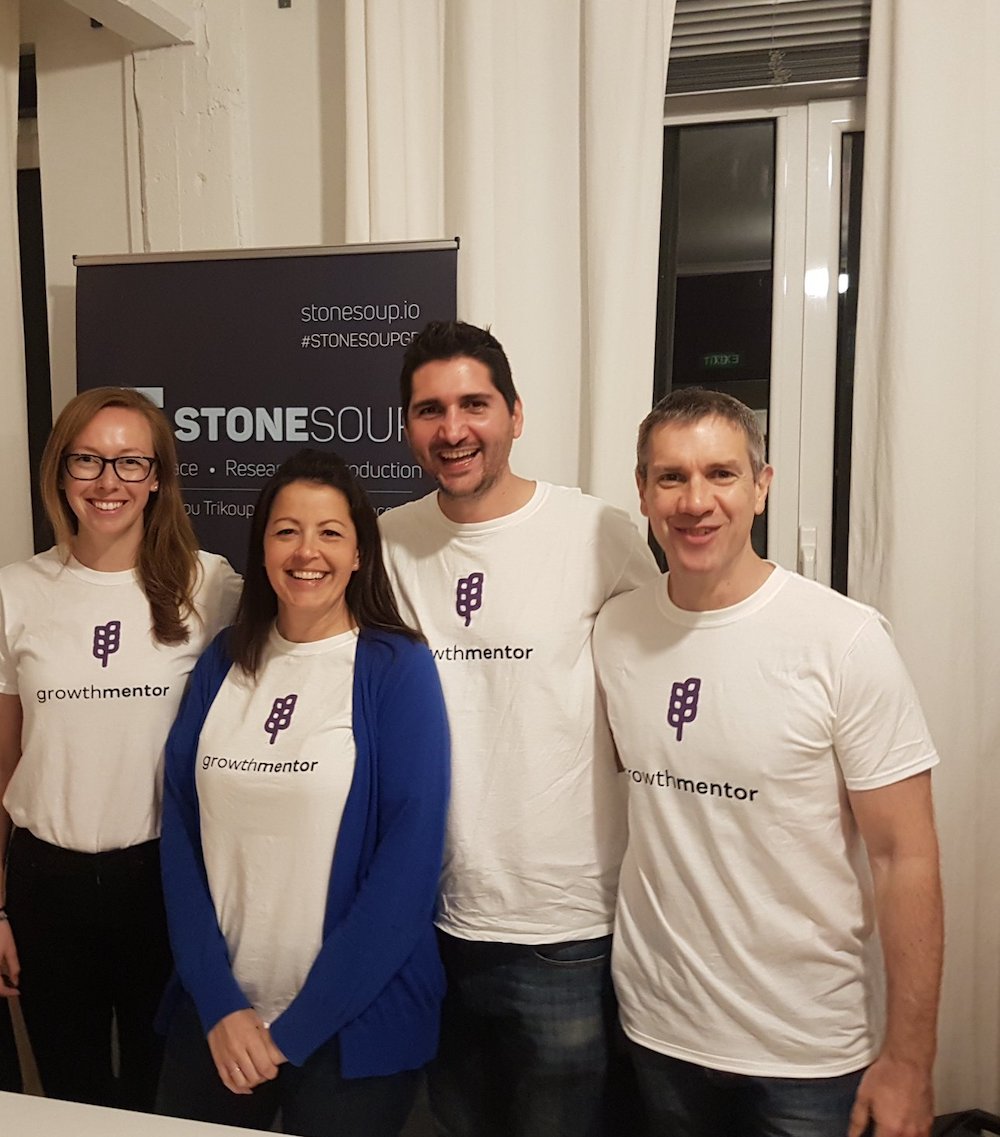The Best Alternatives to Mentorcruise
If you’ve spent any time searching mentorship platforms, you’ve probably come across Mentorcruise.
But you may be wondering about the other options out there.
Consider this your decision-making guide to picking the right mentorship platform for you, whether that’s Mentorcruise or another platform.
This Isn’t Your Typical Competitor Comparison Article
First and foremost, we want to make a little note about bias: this is not a one-sided takedown piece.
We’re sure most marketers and growth folks started reading this, rolled their eyes and said:

(Said no one ever)“Sure, a competitor alternative piece in which your company presents alternatives to a competitor and talks about why you’re better all the way around. How original and unbiased. I completely trust you.”
Guess what? We’re marketers too.
We do the same thing when we read comparison articles not written by third parties. Because marketers are part of our target audience, we know we can’t pull one over on you guys.
This is not about directing readers to us. This is about directing the right readers to us.
Mentorcruise is not going to be a perfect fit for everyone. But GrowthMentor isn’t either.
Simply put: we’re better fits for different audiences. Mentorcruise is great if you want technical mentorship. GrowthMentor is your go-to if you want marketing and growth mentorship.
Plus, our pricing models and mentorship philosophies (one long-term mentor vs. many mentors and opinions) are totally different.
However, we send business to Mentorcruise and receive business from them—see this X thread for proof:
The TL;DR? Mentorcruise gave us a fair shake in their GrowthMentor alternative article, so we’re going to do the same.
With that out of the way, if you want to jump into what you actually need to be looking for when comparing mentorship platforms, check out the article below. Otherwise keep reading to learn more about Mentorcruise and the alternative options in the market!

What’s MentorCruise Like?
To start off our comparison, let’s look at MentorCruise’s platform profile, a bit about the company’s history, and how the platform works:
- Target Audience: Somewhat broad. While it could apply to anyone in the tech industry, offerings are better suited for engineers, designers, data scientists and product managers.
- Pricing: per session pricing options available or monthly fee for continuous mentorship, price range varies per expert and session type, starting at $39 for 20 minute intro call.
- Types of Mentor Engagements: Offers both long-term and single session options, but the platform is geared more towards long-term mentorship.
- Diversity of Mentor Base: Diverse. While Mentorcruise’s strengths lie in their coding, product management and design mentors, they also offer sales, leadership, and marketing mentors as well. Mentor industries are also varied within tech as well.
- Quality of Mentors: Vetted, but the vetting process and requirements are not outlined on the site.
- Mentee Community: Judging by the site and FAQs, Mentorcruise does not have a mentee community available.
It’s worth noting that like GrowthMentor, MentorCruise allows potential users to view full mentor profiles on the website before signup. This is a major advantage over platforms like Mentorcam, where you have to sign up for an account first.
But those details alone don’t make or break MentorCruise. We actually think the company’s history tells a far more interesting story.
The Origin Story of MentorCruise
MentorCruise’s founder Dominic Monn originally started the company as a side project, in his words: “working on it on weekends and evenings.”
Over the next six years, he bootstrapped the company into a core team of less than ten employees with a mentor network of over 2,500 mentors.
Since GrowthMentor is also bootstrapped with a team of less than ten, we highly respect that kind of work and hustle.
It’s obvious Dominic is hugely passionate about mentorship like we are. He’s doing this because he loves the work and he believes in the positive impact mentorship can make.
In short, MentorCruise is the real deal, built from a place of wanting to help people. We wish all our competitors were like them—the world would be a better place. Because there are definitely a handful of other mentorship platforms focused less on helping and more on making a buck off unsuspecting folks with products that are all sizzle and no steak.
Though speaking of steak, let’s dive into the meat and potatoes of how MentorCruise’s platform works.
How MentorCruise’s Platform Works
MentorCruise has a pretty straightforward onboarding process. You can browse the mentor catalog without an account like so:
There are filters available for mentor skills, their price per session, mentor location, companies mentors have worked for, and various extras like “weekly calls,” “hands-on,” or “quick responses.”
As mentioned earlier, MentorCruise primarily focuses on product and engineering areas, so you’ll notice most of their skill filters relate to those sectors.
Once you’ve found a mentor who might be a good fit, you can click in to see their full profile, which looks like this:
Much like GrowthMentor, you can review the mentor’s about description, find out about their preferred focus areas and read reviews and content from the mentor.
Click that “Start now” button and you’ll be directed to a four-step application process:
If you’d prefer to sign up for an account at this point, you can do so by clicking that “log in” link, then “sign up to be a mentee” at the bottom of the login form, at which point you’ll be directed through a standard account creation and email verification process.
Or you can continue through the application.
Next you’ll be asked to fill in a bit about both your goals, including a dropdown that describes your situation (i.e. just graduated and want to find a job, looking to improve current skills etc), a text field to describe your goal and what you’ve tried, and another dropdown to specify the timeline you’d like to hit by.
Then, we get to an interesting point with the expectations step:
Here, not only will you discuss the obstacles and challenges you’ve experienced, you’ll also set your preferred communication cadence with your mentor. We can’t help but wonder if this is a qualification step for the mentors (after all, there’s an option for “I expect an instant response,” which we could see coming off as demanding to mentors.)
After that, it’s just a matter of setting up an account and submitting your application. We assume you’ll hit a paywall once a mentor accepts your application.
Alternately, if you sign up for an account without applying to a specific mentor, you’ll be directed into a dashboard that gives you the following options for finding a mentor:
If you choose any of the “Featured Sessions,” you can walk through booking a call with any of the mentors for that session type. Instead of an application, you’ll have a much shorter form:
Complete payment and you’ll be booked.
Now that you have a good grasp of MentorCruise’s process, let’s talk about the alternatives.
When GrowthMentor Might Be a Better Fit
- Target Audience: Somewhat broad. Save for a focus on engineering-related and coding-related areas, GrowthMentor covers skill-sets related to most areas of the tech industry. But, we primarily serve founders and marketers.
- Pricing: Flat monthly rate. $49 for one free call a month, $99 for unlimited calls. 85% of GM mentors do not charge an extra fee and those that do are encouraged to set “startup friendly” prices.
- Types of Mentor Engagements: The platform is geared towards single-sessions.
- Diversity of Mentor Base: Diverse. GrowthMentor’s mentors come from all different industries and a vast array of skill-sets.
- Quality of Mentors: Vetted, and you can read all about it.
- Mentee Community: Available, and a major part of the platform. Spend any time in our Slack community and you’ll see mentees and mentors helping each other out regularly.
The GrowthMentor Philosophy Difference
As we mentioned earlier, MentorCruise and GrowthMentor come from two totally different mentorship philosophies. Where MentorCruise focuses on a mentor engagement and pricing model that encourages long-term mentorship, GrowthMentor focuses on single-session mentorship with a variety of mentors.
Why?
Because having one mentor may have worked for Luke Skywalker and Yoda. But this is the real world, not Star Wars, and we don’t believe one mentor can teach you everything you need to know.
Think about it. Especially if you’re a founder (our target audience), how many times have you run into a situation where yes, you need help with a major project in your company. But you’re also struggling with a lot of self-doubt and mental stress.
Even if one mentor has the skill-set to handle both issues, you’re asking them to do a major gear-shift between the two. One is problem solving while the other is essentially startup founder therapy. That’s a lot to put on one person.
Instead, with GrowthMentor’s model, your sessions look more like this:
You can pick and choose the best mentor to solve the issue you’re facing. And this is exactly why we have a flat rate for booking unlimited calls. Plus, of all the options on this list (save for ADPList and The Mentoring Club, which are free, but not vetted), we have the lowest monthly rate.
But don’t take our word for it. Hear how well it works from one of our customers:

Georgi TodorovGaining access to all experts and the ability to book multiple calls a week offers great value. This is especially notable considering the cost of approaching these specialists outside the platform, which can be $150 per call…GrowthMentor is the place to get ideas from different people and pick brains on anything you need.
You may be wondering: okay, great one flat rate for unlimited calls, the whole diversity of thought thing works, but why are 85% of the mentors free?
It’s simple: they want to help people out. No catch. No games. We even have a Youtube video about it, straight from the mentors themselves:
We’re a give-first community, so our mentors aren’t motivated by money. They’re motivated by a love of this space and a joy in seeing products and the founders, marketers, and product managers behind them, succeed.
Who Is GrowthMentor a Good Fit For
The short answer to this question: founders, marketers, growth practitioners, and product folks.
The long answer to this question:
If you’re a founder or product person, GrowthMentor fulfills a very specific role in helping expand your horizons. We cover 34 different skill areas, including product management, team building, sales, and customer success. You can learn about any of these areas, uncover new skills and get the holistic understanding of how the elements of your company or product work together. When you understand the whole machine, you can make better decisions to make your company or product work better, faster than you ever thought possible.
If you’re in marketing, you’ve also come to the right place. We specialize in it. Of the 34 skill areas, 11 are marketing focused.
Here’s the breakdown of mentors in our marketing skill categories:
- Growth marketing: 268 mentors list as expertise
- GTM strategy: 198 mentors listed
- Content marketing: 169 mentors listed
- CRO: 157 mentors listed
- PPC: 108 mentors listed
- Email marketing: 102 mentors listed
- SEO: 91 mentors listed
- Marketing automation: 90 mentors listed
- Product marketing: 56 mentors listed
- Social media: 56 mentors listed
- Copywriting: 55 mentors listed
You can get mentorship in almost any area of marketing you can think of, with practical, hands-on advice about your specific problem.
And finally, for the growth folks, it shouldn’t come as a surprise that, as the name implies, we focus on growth. 556 of our almost 700 mentors mention growth in their profiles, 269 specialize in growth marketing, 136 in growth strategy, and 26 in growth product. You know growth practitioners see the world through a different lens. Don’t you want a platform that will let you talk to plenty of mentors who see things similarly?
To be fair, however, GrowthMentor is not a good fit for you if you are A. looking for long-term mentorship or B. need assistance with engineering and development related areas like coding. There are other alternatives listed here that will be a better choice for you.
How GrowthMentor’s Platform Works
If one of the above cases sounds like you, you’re probably curious about how GrowthMentor’s mentor booking process stacks up against MentorCruise’s.
You’ll want to start by visiting the “browse mentors” page. You could just start scrolling.
But, since we have more than 600 mentors, you’ll want to narrow down your options first.
Within our mentor search, you can apply filters to search for mentors with specific skills, software expertise, industries, or current and former companies. There are 275 different software areas to filter by, 30 skill areas, 300 industries, and more than 100 mentor companies.
For example, let’s say you’re facing questions about building a team for a SaaS industry company and you want a mentor with experience in both of those areas. All you have to do is check “Team Building” under skills, for 278 mentors:
And then, after a quick search for “SaaS” under “Industries”, check that box to narrow your field down to 107 mentors:
We usually recommend applying no more than 2 filters at a time, as certain filters (such as a mentor’s previous or current company) can pinpoint fairly specific results.
But in some cases, your filters may still yield a fairly large pool of potential mentors, like our 107 SaaS mentors with team building experience above.
To focus your options even more, you can search for specific keywords in our general profile search. Within our “SaaS” and “Team Building” filters, a search for the keyword “app” produces 39 mentor options, a search for “founder” yields 47 options, and a search for “accelerator” produces 15.
From there, it’s just a matter of browsing your options and determining which mentor seems like the best fit for you.
Unlike MentorCruise, we don’t do applications. You’ll hit “request a call,” choose your session duration (either 15, 30, or 60 minutes), pick a call location (Zoom, Google Meet, or our GrowthMentor video rooms), then choose a session time and answer the following questions about your challenge:
Your mentor will confirm the request and the call will take place over video conference like most mentoring platforms.
However, sometimes you’re in the throes of decision fatigue and simply don’t have the time or energy to sort through even five or ten mentor options.
Situations like these are exactly why we built our new AI matching engine:
Simply describe your primary pain-point, add your desired outcome, and in a matter of minutes, you’ll be matched with three different mentors who will be a great fit to help with your challenge.
Then, it’s just a matter of booking your call and asking your questions.
The Other MentorCruise Alternatives
If, for some reason, neither MentorCruise nor GrowthMentor suits your needs, you do have other options:
Best Free Alternative: ADPList
- Target Audience: Broad. ADPList covers a wide range of topics and skills related to the tech industry.
- Pricing: Free
- Types of Mentor Engagements: Offers both single-session and long-term engagements, but the platform leans more to single-session engagements.
- Diversity of Mentor Base: Diverse. Mentors on ADPList are volunteers and therefore can come from any background, skill-set or industry.
- Quality of Mentors: Not vetted. Mentors are volunteers and their applications are approved by ADPList, but the acceptance criteria are very loose: 5 years of experience in a field, 1 year of leadership experience, and a complete mentor profile.
- Mentee Community: Available via group mentoring sessions.
Because it’s free, ADPList is a great way to test-drive a mentorship platform. However, because it’s free and acceptance standards are incredibly minimal, you may find mentors are presenting themselves as “experts” rather than top performers in their fields.
Best Secondary Free Alternative: The Mentoring Club
- Target Audience: Extremely broad. The Mentoring Club covers a wide range of topics, some of which are even beyond the realm of tech.
- Pricing: Free
- Types of Mentor Engagements: The platform is geared towards single-session engagements.
- Diversity of Mentor Base: Diverse. Like ADPList, mentors on The Mentoring Club are volunteers and therefore can come from any background, skill-set or industry.
- Quality of Mentors: Not vetted. Mentors are volunteers and standards are not outlined clearly on the site.
- Mentee Community: Not available.
Just like ADPList, The Mentoring Club is a good way to test out mentorship. Unlike ADPList, however, it’s not outlined whether mentor profiles have any kind of approval necessary before joining.
Best Alternative for DIY: Together
- Target Audience: Enterprise companies who want to build their own internal mentorship program
- Pricing: Plan tiers of free, $10K per year minimum, and $20K per year minimum.
- Types of Mentor Engagements: N/A. This will be determined by each individual company as they build their mentorship program.
- Diversity of Mentor Base: Not diverse. For an internal mentoring program, the mentor pool will come from senior employees within a company. Meaning both backgrounds and skill-sets will be limited.
- Quality of Mentors: N/A. Mentors are “vetted” in the sense that they are senior employees of the company chosen to be mentors.
- Mentee Community: N/A
So we admit this one is a bit of an apples-to-oranges comparison because it’s a do-it-yourself mentorship platform. However, if you’re part of an enterprise company, you may have the resources available to start an internal mentorship program rather than rely on an external one.
Simply realize this route is going to take a large amount of time, money, effort, and team resources to build. And it’s not a one-time deal: once you build the program, you’ll have to have an entire team dedicated to maintaining it and keeping it active.
(Of all the DIY mentorship platforms, we had to give Together a shout-out as one of our mentors, Ryan Carruthers, used to work with them.)
Best Alternative for Engineers: Codementor
- Target Audience: Narrow. Targeted towards engineers or individuals needing dev/engineering mentorship.
- Pricing: Per session pricing. Price range varies widely per expert, but typically falls between $64-$120 per hour.
- Types of Mentor Engagements: Appears to be geared more towards single-session options.
- Diversity of Mentor Base: Incredibly narrow. While the specific industries of Codementor’s mentors may vary, they’re all developers and engineers focused on mentoring in coding.
- Quality of Mentors: Vetted, but the vetting process and requirements are not outlined on the site.
- Mentee Community: CodeMentor does offer a mentee community for users to work through code problems.
If you’re interested in Mentorcruise purely for developer purposes, you might want to consider Codementor instead. If you don’t need a mentor with a ton of previous expertise, Codementor may be a more affordable option. However, the platform is solely focused on coding, so it’s not a good option if you want mentorship outside of that arena.
Best Alternative for Engineering Leaders: Plato
- Target Audience: Extremely narrow. Targeted towards engineering leaders.
- Pricing: Free community, but mentor calls are based on a credits system, $300 for two calls minimum, monthly subscription or one-time options available
- Types of Mentor Engagements: Appears to be geared more towards single-session options.
- Diversity of Mentor Base: Incredibly narrow. The mentors are not just engineers, but engineering leaders.
- Quality of Mentors: Vetted, but the vetting process and requirements are not outlined on the site.
- Mentee Community: Plato does offer a community for users to read content from others on the platform and offers live events and Q&As.
If you’re an engineering leader, Plato may be a better choice for you than MentorCruise. Simply keep in mind that this platform is highly specialized, so you’re locked in to only improving in the area of engineering leadership.
Best Alternative for Those that Like Phone Calls: Clarity.fm
- Target Audience: Broad. Clarity.fm covers a wide range of topics and skills related to the tech industry.
- Pricing: Per session pricing. Price range varies wildly per expert. It’s quite expensive: between $120 and $960 per hour on average. Clarity also offers an extra product, Clarity Live, but the pricing is not easily accessible on the site.
- Types of Mentor Engagements: The platform is more focused on single-session engagements with all sessions taking place over a call bridge (which feels very early 2000’s)
- Diversity of Mentor Base: Diverse. Clarity.fm’s mentors come from all types of industries, backgrounds, and skill-sets.
- Quality of Mentors: Vetted, but the vetting process and requirements are not outlined on the site.
- Mentee Community: Clarity.fm has a Quora-like community where mentors and mentees can answer questions. It does not appear to have alternate ways for mentees to engage with each other.
Unlike Mentorcruise, Clarity.fm does not have any skill areas you might consider “their specialties.” However, of all the alternatives on this list, it’s the only one that comes close to matching the number of mentors that Mentorcruise has.
Just brace yourself for major sticker shock before you sign up.
Best Alternative For Founders Seeking Mentors from Large Companies: Mentorcam
- Target Audience: Somewhat broad. While it could apply to anyone in the tech industry, offerings are better suited to those in sales and operations.
- Pricing: per session pricing, price range varies per expert but is not outlined on the site. Upon creating an account, most mentor pricing starts at $350 per hour, with a couple of exceptions at $250 per hour.
- Types of Mentor Engagements: More geared towards single session engagements.
- Diversity of Mentor Base: Narrow. While Mentorcam outlines several different areas of expertise on their site, there are only between 6-20 mentors under each category (for comparison, Mentorcruise’s expertise pages average from 150-400 mentors, and GrowthMentor’s from 50-250 mentors)
- Quality of Mentors: Vetted, but the vetting process and requirements are not outlined on the site.
- Mentee Community: Not available
Mentorcam takes a highly niche approach to mentorship. The majority of their mentors have worked for FAANG and Fortune 500 companies.
However, their pricing and mentor engagement models aren’t very transparent. Everything requires creating an account first. Like Clarity.fm, Mentorcam’s sessions can be quite expensive.
Also, for newer founders and companies just getting off the ground, it’s worth noting that the tactics that work for major corporations and VC-backed startups often don’t work for bootstrapped or early stage operations.
Best Secondary Alternative For Founders Seeking Mentors from Large Companies: Intro.co
- Target Audience: Broad and not entirely career-oriented. Some offerings could apply to anyone in the tech industry, others aren’t career focused, and instead relate to fashion, health, home, or astrology experts.
- Pricing: per session pricing, price range varies widely per expert, with most experts costing upwards of $100. Sessions can also “sell-out” meaning you’re stuck on a waitlist.
- Types of Mentor Engagements: More geared towards single session engagements.
- Diversity of Mentor Base: Diverse. However, Intro isn’t very transparent about how many mentors are in each category/specialization on the platform.
- Quality of Mentors: Unknown. Experts are referred to as “in-demand”, but the site does not outline their vetting process.
- Mentee Community: Not available
Like MentorCam, Intro.co is about reputation. Also like Mentorcam, that reputation element comes with a much higher cost. Plus, unlike the other platforms listed here, Intro.co isn’t entirely career-focused. Which may be helpful if you want expert advice outside of your career, but it’s not the typical approach for a mentorship platform.
Best Alternative for Long Term Mentorship: Pelion
- Target Audience: Somewhat broad. According to Pelion’s mentor matching quiz, they cover most areas related to the tech industry.
- Pricing: per month retainer, with rates ranging from $300-$1000 per month and a 6% fee charged from Pelion.
- Types of Mentor Engagements: The platform is geared toward long-term mentorship.
- Diversity of Mentor Base: Unknown. Pelion does not offer a mentor catalog on their site and instead matches to 3-4 mentors via a quiz.
- Quality of Mentors: Vetted, but the vetting process and requirements are not outlined on the site.
- Mentee Community: Not available
Pelion combines the “big-name” approach of Mentorcam with the long-term mentorship focus of Mentorcruise. The mentor matching onboarding quiz may also prove a big bonus to some.
However, the best word to describe Pelion is, unfortunately, opaque. They don’t list all of their mentors in an easily accessible catalog and the homepage provides very limited information on how the platform actually works after you’ve joined.
And it’s not completely clear how many sessions you get for that monthly retainer (though Pelion does state: For most mentors, that means two hourlong video calls per month, and ad-hoc sparring over email in between.)
Thus, it’s hard to provide more information than what’s given above.
Which Platform Should I Pick?: The TL;DR Version
We know it’s a lot to read the above in depth, so we pulled together a “quick hits” list of who you should pick and when:
- If you want long-term mentorship: Mentorcruise or Pelion. Mentorcruise is less expensive.
- If you’re highly concerned about mentor vetting: GrowthMentor. We’re the only platform to outline our mentor vetting process on our site.
- If you’re a late stage startup: Clarity.fm or MentorCam. Both source mentors who are big name experts, but also come with a big price tag.
- If you’re a developer or engineer: Codementor, Plato, or Mentorcruise. All three cater to technical audiences.
- If price is your biggest deciding factor: GrowthMentor, The Mentoring Club or ADPlist. ADPlist and The Mentoring Club are free but not vetted. GrowthMentor is strictly vetted, and max $199 per month for unlimited calls.
- If you’re a large company: Clarity.fm, MentorCam, Intro.co, or Together. Keep in mind the first three options will provide mentors, while Together is an internal, DIY software.
- If community is important to you: GrowthMentor. We’re the only option with a mentee-to-mentee community on our platform and on Slack.
- If you value transparency: Mentorcruise or GrowthMentor. Both platforms outline our mentor catalog and pricing options openly.
- If you’re in product management: Clarity.fm or MentorCruise. Both have a ton of PM mentors.
- If you want a variety of perspectives and put a high value on diversity of thought: GrowthMentor. The plans are built to encourage connecting with multiple mentors.
So, that’s a wrap on all the alternatives to Mentorcruise on the market.
We hope this has given you a good grasp of which platform will be best for you.
And remember, if you need a platform focused on growth and marketing that values community and transparency at a fair price, join GrowthMentor.
Find the mentor you need, super-fast
